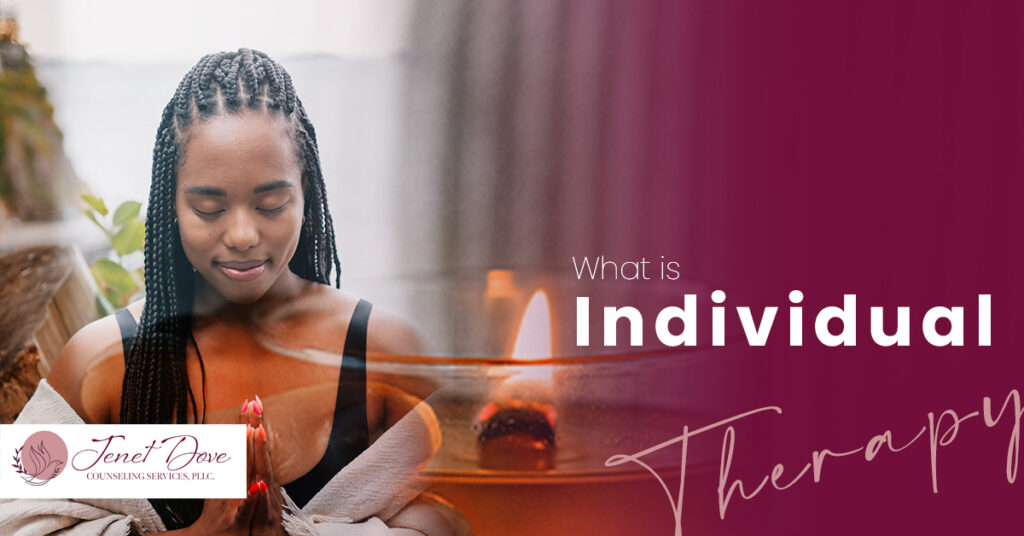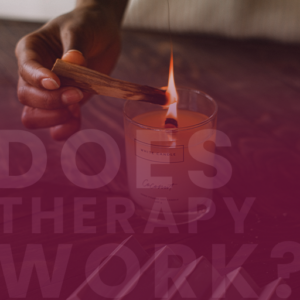 While searching for a therapist, chances are you’ve come across terms like group therapy and individual therapy. Both forms of therapy are very beneficial but depending on your individual needs, you may seek one over the other. If you’re interested in knowing more about individual therapy, when you should consider it, and how it works, then keep reading!
While searching for a therapist, chances are you’ve come across terms like group therapy and individual therapy. Both forms of therapy are very beneficial but depending on your individual needs, you may seek one over the other. If you’re interested in knowing more about individual therapy, when you should consider it, and how it works, then keep reading!
What is Individual Therapy?
Unlike group therapy, where a therapist speaks with multiple individuals sharing a common issue, individual therapy is much more personal. You’ll have the opportunity to have one-on-one sessions with a trained professional. This form of psychotherapy is typically used to treat various emotional difficulties, mental illnesses, and general life concerns. Is Individual Therapy Worth It?
Is Individual Therapy Worth It?
Another thought that may have crossed your mind is if individual therapy is really worth it. No matter your concerns, therapy can be a beautiful life-changing experience. Some of the benefits that clients may walk away with include:
- A better understanding of self
- Tailored support from a qualified professional
- Long-lasting positive lifestyle changes
- Greater control of emotions
- Ability to identify troublesome habits or thoughts
- A wide range of coping strategies to use in between sessions
When Should You Seek Individual Therapy?
Now that you know the benefits of seeking individual therapy, you may be wondering when you should seek it. The best time to seek individual therapy with a qualified therapist is when:- You’re dealing with extreme emotions
- You no longer have the capacity to participate in activities you once enjoyed
- There was a recent jarring event in your life, such as divorce or the loss of a loved one
- You’re having difficulty dealing with past trauma
- You’ve been feeling worthless or depressed
- You are looking to increase your self-awareness
How Individual Therapy Works
Though it depends on the professional you’re working with and your specific needs, most individual therapy sessions go like this:#1 Determine If It’s The Right Fit
The first session of individual therapy is typically in the form of a 15-20 minute consultation and will likely involve information gathering. The therapist may ask you about your past experiences and what led you to seek services. This first session is also key to determining if the therapist you’re seeing is the right fit for you. It’s extremely important that there is a connection between you and your potential therapist.#2 You Build a Rapport and Begin To Open Up
Generally, in individual therapy, the therapist will want you to do most of the talking. At first, it may be difficult to stir up emotions and talk about past traumatic events. However, you’ll find it easier to open up after you and your therapist build a harmonious relationship. This may take a few sessions or it may happen instantaneously. There is not an exact timeline for this process, as everyone’s experiences are unique.#3 You’ll Start To Develop Healthy Coping Strategies
Over time, you’ll feel more comfortable discussing in detail the different emotions and experiences in your life that led you to seek services. You will begin to appreciate your therapist for providing a safe and reliable space to unpack your challenges. With time, you’ll begin to develop healthier thinking patterns and habits that will help you cope with whatever you are going through.Do You Think You’re Ready For Individual Therapy?
If you’ve been asking yourself, where is a high-quality therapist near me that I can rely on for individual therapy? The search is over. My name is Jenet and I’m a licensed psychotherapist who is on a mission to help individuals develop clarity and healthy lifestyle changes to better their mental wellbeing. Book your initial consultation session with me now!My name is Jenet Dove and I am a certified psychotherapist providing marriage and premarital counseling in Houston. Book your free consultation today to learn more!
Do you ask yourself, where is an attentive therapist near me
or a female counselor near me?
Book a Consultation Today!







